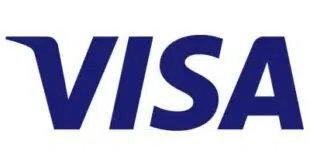Citing the difficulties that gas stations are having in retrofitting fuel pumps to accept EMV chip cards, Visa Inc. and MasterCard Inc. are postponing their Oct. 1, 2017, EMV liability shift for U.S. automated fuel dispensers (AFDs) until Oct. 1, 2020.
Visa announced the postponement in a blog posting early Thursday. The card network’s statement notes that the original deadline was set two years after Visa’s Oct. 1, 2015, point-of-sale liability shift because of the complexities of retrofitting or replacing AFDs. But now, even those extra two years are proving insufficient for many gasoline retailers.
“Given our discussions with merchants, clients, and partners, Visa has decided to delay the U.S. domestic AFD EMV activation date from Oct. 1, 2017, to Oct. 1, 2020,” the statement says. Visa would not comment on the matter beyond its statement.
Visa is not changing its ATM EMV liability shift, which is set for next Oct. 1.
A consultant recently told Digital Transactions magazine that the total cost to upgrade U.S. fuel pumps for chip cards could hit $6 billion. A gas station will spend $20,000 to $30,000, on average, to upgrade pumps that can accept chip card conversion kits, but stations needing to entirely replace old pumps with new EMV-accepting ones may be looking at bills of $50,000 to $80,000 or even higher per location.
“The fuel segment has its own unique challenges, which we recognized when we first set the chip activation date for automated fuel dispensers/pumps (AFDs) two years after regular in-store locations,” Visa’s statement says. “We knew that the AFD segment would need more time to upgrade to chip because of the complicated infrastructure and specialized technology required for fuel pumps. For instance, in some cases, older pumps may need to be replaced before adding chip readers, requiring specialized vendors and breaking into concrete. Furthermore, five years after announcing our liability shift, there are still issues with a sufficient supply of regulatory-compliant EMV hardware and software to enable most upgrades by 2017.”
Delaying the liability shift, thereby lengthening card issuers’ exposure to counterfeit fraud from magnetic-stripe credit and debit cards, does not appear to be too risky, according to Visa. The company said “fraud rates at fuel pumps are relatively low—approximately 1.3% of total U.S. payment fraud.” Visa also said that the 53,000 gas stations that use its Visa Transaction Advisor risk-assessment program have seen 50% reductions in counterfeit and lost-and-stolen card fraud.
MasterCard, in a statement to Digital Transactions News Thursday morning, said, “EMV compliance for fuel merchants with automatic fuel dispensers brings significant regulatory and implementation challenges. Over the past months, we have had extensive discussions with fuel merchants, issuers, acquirers, and other stakeholders regarding these unique challenges. Today, MasterCard is modifying the automatic fuel dispenser liability shift date from October 2017 to October 2020. This decision applies only to automated fuel pumps.”
MasterCard, which had its U.S. ATM EMV liability shift two months ago, said it remains “committed to EMV chip technology as the best and most effective solution for combatting counterfeit card fraud.” The company also reiterated that it now has an artificial-intelligence risk-control service called Decision Intelligence that helps card issuers reduce the number of false declines in purchase transactions.
The Electronic Transactions Association, the Washington, D.C.-based national merchant-acquiring industry trade group, put out a statement early Thursday praising Visa’s decision.
“Fuel pumps often feature integrated payments terminals, requiring in many cases the replacement of an entire pump, which can involve significant costs, environmental permitting, and heavy construction,” the ETA said. “Taking into account the migration challenges and relatively low fraud at AFDs, Visa’s liability-shift deferment is a positive and balanced action supporting merchants and industry EMV migration efforts.”





